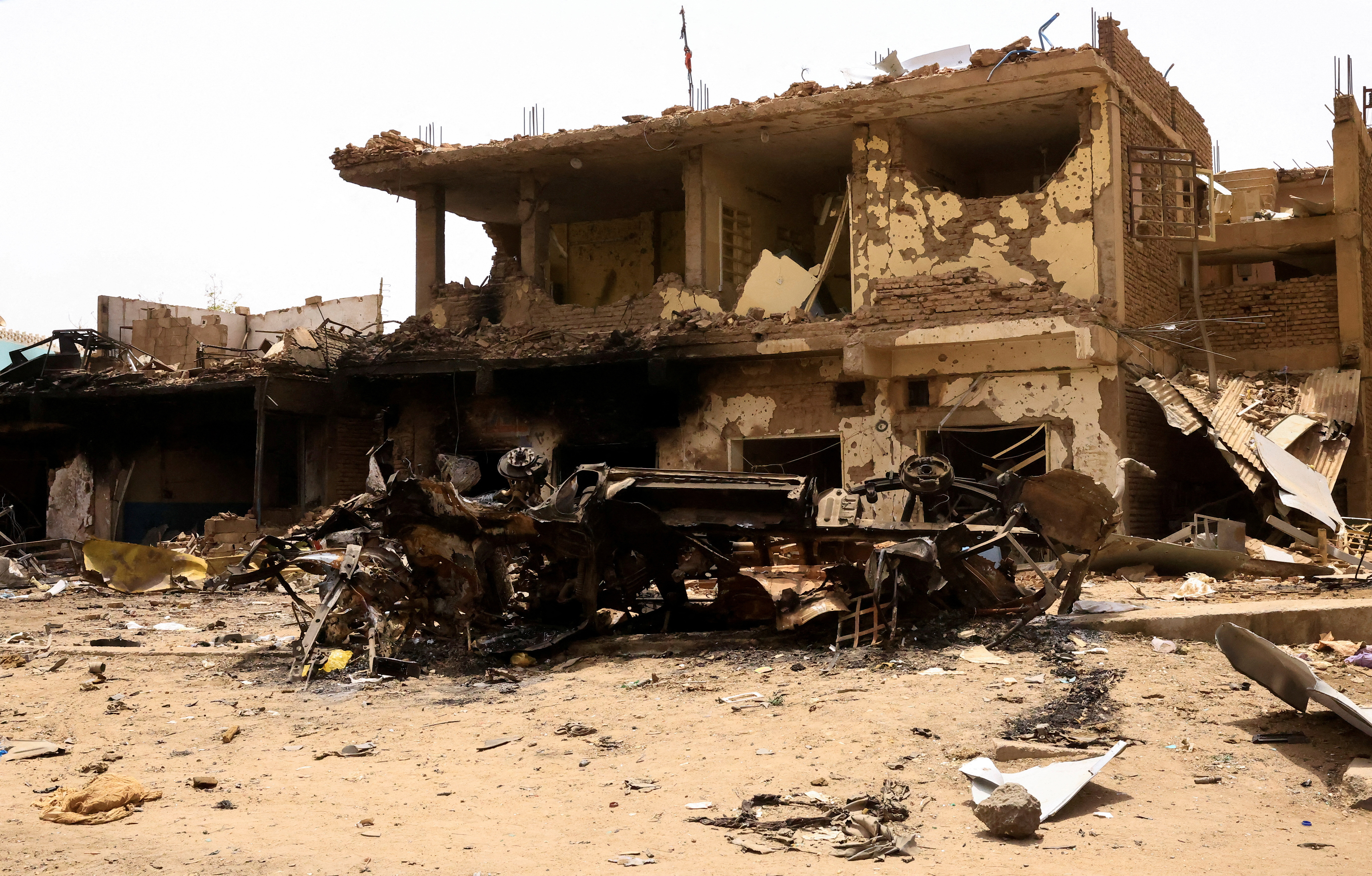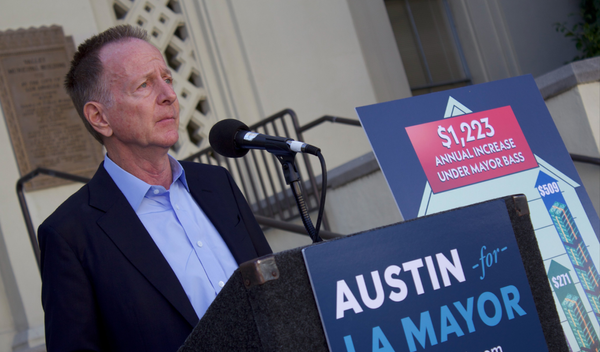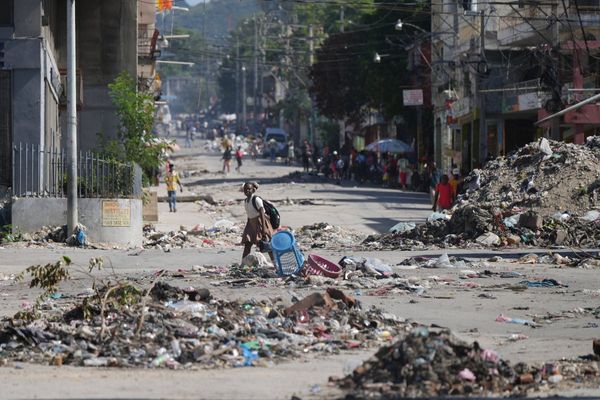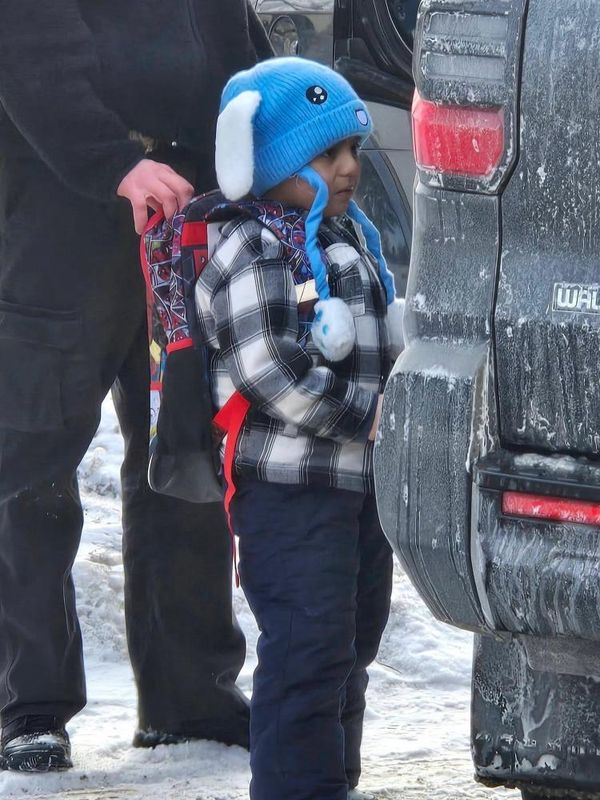
Early in the morning on September 10, the Sudanese army carried out an airstrike on a market in the capital Khartoum, according to local volunteers. 47 civilians were killed, medics said, and more than 80 were injured. Many survivors lost their limbs.
Activists believe that the army was targeting nearby fighters from the paramilitary Rapid Support Forces (RSF), but only civilians were killed.
“All the martyrs were women, children and young men,” said Mohamad Issa*, an activist providing medical support to victims in the area. “The army always shells areas where there are many civilians living.”
The deadly air attack is part of a broader pattern of aerial attacks that have killed hundreds of civilians – possibly more – since Sudan erupted into a civil war between the army and RSF on April 15.
In September alone, army airstrikes have killed at least 123 people in Khartoum, according to figures that Al Jazeera obtained from open source data and local medics.
Most residents blame the RSF for embedding in civilian neighbourhoods to protect themselves from the army’s shelling and airstrikes. The strategy could amount to using non-combatants as human shields, which is a war crime under international law.
But army attacks have also not spared civilians, despite the army’s pledge to protect them from the RSF, say civilians, rights groups and analysts.
“Whether the RSF is inhabiting civilian areas as a strategy or not, the army doesn’t care. As long as there are RSF potential targets, it becomes a combat zone [for the army],” said Kholood Khair, a Sudanese expert and founding director of the think tank Confluence Advisory.
“I think it just underscores the extent to which the army has never cared about civilians,” she added.
Bombing markets and homes
Activists told Al Jazeera that the army often bombs and shells markets in southern Khartoum despite the presence of large crowds of civilians.
They cited two separate attacks on markets that occurred on June 1 and June 17, and which killed 17 and 19 people, respectively.
“The civilian death rate [from the airstrikes that hit residential areas] is estimated to be around 80 percent each time,” said Ahmed Fadel*, a member of a local neighbourhood committee which is providing medical relief to his community.
Hamid Khalafallah, a Sudanese expert who fled the country in May, says that the army’s attacks are not inflicting significant losses on the RSF, which controls most of the capital.
He added that a former colleague of his was killed by an airstrike on her home in south Khartoum, even though no RSF fighters were nearby.
“If there were significant RSF losses, the army would definitely be reporting it. But it is mostly civilians losing their lives and as long as the military needs to increase their operations, then more civilian losses will occur,” he told Al Jazeera over the phone.
The western region of Darfur has also witnessed an uptick in devastating airstrikes. On August 21, the army shelled a market and killed at least 24 people in south Darfur’s capital Nyala, according to residents and local monitors.
Then, in early September, activists in Nyala blamed the army for carrying out airstrikes and shelling that destroyed several homes and killed 14 people on September 3. Local monitors confirmed the incident and death toll to Al Jazeera.
“The army’s warplanes shelled the civilian neighbourhood and the attack was far away from the RSF. There was such big destruction in the civilian populated area,” said one survivor who spoke about the incident in a video posted on Facebook.
On September 13, another 40 people were reportedly killed in Nyala by army shelling, according to local monitors.
Al Jazeera requested comment from army spokesperson Nabil Abdullah regarding the allegations, but he did not respond.
Abdullah has previously blamed airstrikes and shelling leading to large numbers of civilian casualties on the RSF, although the paramilitary does not have an air force.
“We [the military] only aim our attacks at the enemy’s groups and stations in different areas,” he recently said.
Fear of backlash
Activists and analysts told Al Jazeera that army airstrikes causing acute collateral damage are underreported.
In Khartoum, they said that many witnesses do not report army attacks out of fear that they could be accused by their peers of supporting the RSF, whose members are accused of intentionally targeting civilians in the conflict.
Military intelligence has also arrested young antiwar activists who it perceives to be against the army, according to a recent report by Redress, a non-profit advocating for legal reforms that respect human rights worldwide.
“Even on Twitter [now rebranded as X], if you say that the military has done [something] to me or my family, then the comments will say ‘how dare you’. [They will say] that the military is trying to protect you. It’s very difficult for normal citizens to report [on army attacks],” said Khalafallah.
After the September 10 attack, one social media user justified the bombing by claiming that unarmed civilians should not have been near the RSF target if they wanted to avoid getting hit.
Khair, from Confluence Advisory, said that sentiments towards the army are quite different across the country. In the north and east, where civilians are relatively safe from clashes and living under army control, more people are supportive of the army.
But elsewhere, where people are living under fear of airstrikes, opinions differ.
“I don’t think the army is sensitive at all to people’s views in places like Nyala where people are saying that ‘the army is bombing us to hell and we don’t think the war is worth it,’” she said.
Issa, the activist providing medical support to victims from the September 10 attack, said that the RSF commits daily violations against civilians in the capital – such as mass looting, abductions and sexual violence – which has compelled many residents to support the army’s attempts to retake the city.
But Issa added that the attacks that have killed civilians are leading more people to doubt that the army is trying to protect them.
“The RSF and army are fighting a war to acquire power,” he told Al Jazeera. “I don’t believe either side cares to protect civilians.”
*Some names have been changed for the safety of the interviewees







